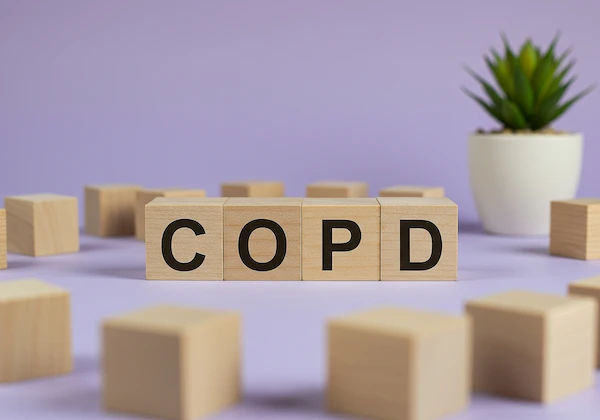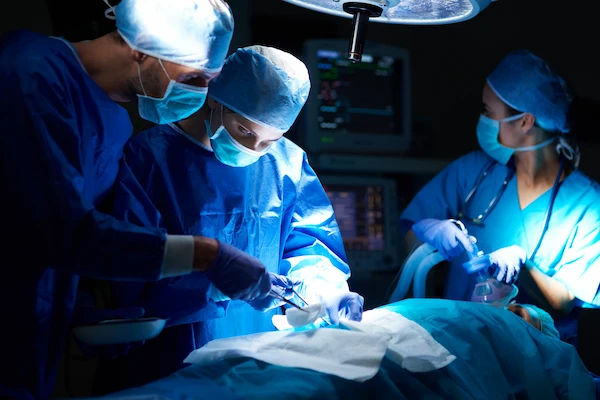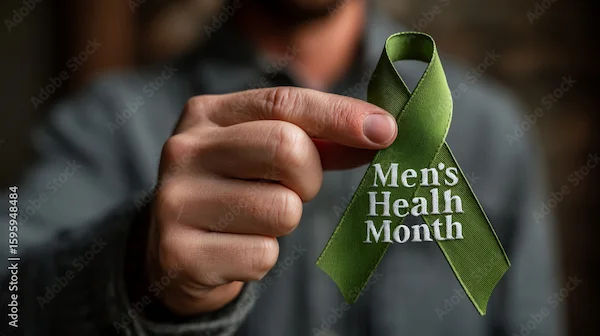Guide to Life After Transplant: How You Can Care
Discover how to live well after an organ transplant. Learn recovery tips, medication management, infection prevention, diet, exercise, and emotional wellbeing for a healthier, thriving future.

.webp?tr=q-80,f-webp,w-350,dpr-2,c-at_max 700w)
Introduction
An organ transplant is a monumental second chance—a profound medical achievement that marks the end of a long illness and the beginning of a new chapter. But what does that new chapter look like? Life after transplant is a journey of recovery, adaptation, and rediscovery. It’s about learning to thrive with your new organ, not just survive. This guide is designed to walk you through every step of your post-transplant care, from the moment you leave the hospital to building a fulfilling, healthy future. We'll cover everything from medication management and infection prevention to diet, exercise, and emotional wellbeing, empowering you to take control of your health and live your life to the fullest.
The First Few Months: Navigating the Immediate Recovery Phase
The initial period after leaving the hospital is crucial for setting the stage for long-term success. Your body is healing from major surgery while adjusting to new medications.
The Hospital Discharge Process: What to Expect
Your discharge isn’t the end of care; it’s the transition to you managing your care with guidance. You’ll leave with a detailed care plan, including a schedule for your immunosuppressant medications, follow-up appointments, and lab work. Ensure you understand every instruction—don’t hesitate to ask your transplant coordinator to clarify anything.
Setting Up Your Home for Recovery
Prepare a clean, restful space at home. Have a pill organiser ready, stock up on healthy groceries, and set up a system to track your vital signs (like temperature and blood pressure) as advised. This is also the time to enlist help from family and friends for chores and errands.
Managing Pain and Fatigue
Fatigue is one of the most common challenges after any major surgery. Listen to your body. Balance rest with gentle activity, like short walks around your home. Pain should be manageable with prescribed medications; report any severe or worsening pain to your team, as it could be a warning sign of a complication.
Consult Top Specialists for Personalised Tips
The Cornerstone of Transplant Success: Your Medications
Your new lease on life is sustained by one critical factor: your medications. Adherence is non-negotiable.
Understanding Immunosuppressants: How They Work and Why They're Vital
These drugs prevent your immune system from recognising the new organ as foreign and attacking it (rejection). Think of them as a daily peace treaty between your body and your transplant. Taking them exactly as prescribed is the single most important thing you can do to protect your organs. Skipping even a single dose can increase the risk of rejection.
Creating a Foolproof Medication Routine
Use a daily pillbox, set alarms on your phone, and keep a backup supply. Always order refills well in advance. Travel with your medications in your carry-on luggage. This routine is your new normal, and making it habitual is key to successful long-term transplant management.
Managing Side Effects of Anti-Rejection Drugs
All medications have side effects. Common ones include tremors, headaches, increased appetite, weight gain, and elevated blood pressure or blood sugar. Never stop taking your medication due to side effects. Instead, report them to your transplant team. They can often adjust dosages or prescribe additional medications to manage these effects. If you experience troubling side effects, consult a doctor online with Apollo24|7 for prompt advice on management strategies.
Protecting Your New Organ: Infection Prevention Strategies
Because your immune system is deliberately suppressed, you are more susceptible to infections. Vigilance is your best defense.
Hand Hygiene: Your First Line of Defence
Wash your hands frequently with soap and water, especially before eating, after using the restroom, and after being in public places. Carry alcohol-based hand sanitiser for times when soap isn't available.
Food Safety Guidelines to Live By
Practice impeccable food safety to avoid foodborne illnesses. Avoid raw or undercooked meat, fish, and eggs. Steer clear of unpasteurised dairy products and juices. Wash all fruits and vegetables thoroughly. Be cautious with buffet-style foods and deli meats.
Navigating Social Situations and Avoiding Illness
It’s okay to be cautious. Avoid crowded indoor spaces during cold and flu season. Wear a mask in high-risk settings. Politely distance yourself from anyone who is sick, and don’t be afraid to ask visitors to reschedule if they’re unwell. Stay up-to-date on vaccinations, but only receive vaccines that are approved by your transplant team (live vaccines are often contraindicated).
Fueling Your Recovery: Nutrition and Diet
Food is medicine. A proper diet after organ transplant helps you heal, manage medication side effects, and maintain a healthy weight.
Building a Heart-Healthy (and Kidney-Friendly) Plate
Your diet will likely emphasise lean proteins (fish, chicken), whole grains, and a variety of fruits and vegetables. It will often be low in salt (to control blood pressure), low in sugar (to prevent diabetes, a common side effect of medications), and low in unhealthy fats (to protect your heart).
Foods to Embrace and Foods to Avoid
- Embrace: Colorful vegetables, berries, oatmeal, grilled chicken, baked fish.
- Limit/Avoid: Processed foods, canned soups, fast food, sugary sodas and desserts, and grapefruit/pomegranate (they can interfere with immunosuppressant levels).
Managing Weight Gain Post-Transplant
Weight gain is very common due to increased appetite from steroids and improved health. Work with a transplant dietitian to create a balanced eating plan that fuels your body without leading to excessive weight gain, which can strain your new organ.
Rebuilding Your Strength: Exercise and Physical Activity
Physical activity is essential for rebuilding muscle, strengthening bones, improving cardiovascular health, and boosting mood.
Starting Slow: Safe Exercises for Early Recovery
Walking: The Foundation of Your Routine
Start with short, slow walks around your house or yard, gradually increasing distance and pace as your stamina improves. Walking is a low-impact, safe way to rebuild cardiovascular health.
Incorporating Light Strength Training
After getting clearance from your team, you can introduce light resistance exercises using bands or very light weights to rebuild muscle lost during illness and recovery. Focus on proper form over heavy weight.
Setting and Achieving Long-Term Fitness Goals
The goal is to integrate activity into your life. Whether it’s gardening, swimming, cycling, or yoga, find activities you enjoy. Always check with your team before starting any new exercise regimen.
Caring for Your Mental and Emotional Wellbeing
The emotional impact of a transplant is significant. It’s normal to experience a wide range of feelings.
The Emotional Rollercoaster: Anxiety, Depression, and "Survivor's Guilt"
Many recipients experience anxiety about rejection, depression from the ordeal and medication side effects, or even "survivor's guilt." Acknowledging these feelings is the first step toward addressing them.
Building a Strong Support System
Lean on family, friends, and fellow transplant recipients who understand your journey. Support groups, either in-person or online, can be invaluable sources of practical advice and emotional comfort.
When to Seek Professional Help
If feelings of sadness, anxiety, or fear become overwhelming or persistent, interfering with your daily life, it’s crucial to seek help. Talk to your transplant team—they can refer you to a therapist experienced in working with transplant patients. Your emotional health is just as important as your physical health. If you're struggling to cope, consider speaking with a mental health professional via Apollo24|7 for convenient and confidential support.
Recognising Warning Signs: Rejection and Complications
Being aware of your body and knowing when to call for help is a critical part of self-care.
Common Signs of Organ Rejection
These can vary by organ but often include:
- Flu-like symptoms (fever, chills, body aches)
- Swelling or pain over the transplant site
- Sudden weight gain or fluid retention
- Shortness of breath (especially for heart/lung transplants)
- Changes in urination (for kidney transplants)
Symptoms of Infection to Watch For
- Fever over 100°F (37.8°C)
- Coughing, shortness of breath
- Redness, swelling, or drainage from your incision site
- Burning during urination
The Importance of Regular Blood Tests and Biopsies
These aren’t optional. Blood tests monitor your medication levels and organ function, often catching rejection before you feel any symptoms. Apollo24|7 offers convenient home collection for these essential tests, making it easier to stay on top of your monitoring schedule. Biopsies provide a definitive diagnosis if rejection is suspected.
Reintegrating into Your Life: Work, Travel, and Relationships
As you recover, you’ll gradually return to the activities you love.
Returning to Work: A Phased Approach
Many people can return to work within 3-6 months, depending on their recovery and job physicality. Discuss a phased return or modified duties with your employer if needed.
Travel Tips for Transplant Recipients
You can travel! Plan ahead: carry extra medication in your carry-on, know the location of transplant centers at your destination, have a copy of your medical records, and ensure you have adequate travel insurance.
Nurturing Personal and Intimate Relationships
Open communication with your partner about your fears, needs, and feelings is key. Your transplant team can provide resources on intimacy after transplant. Remember, a fulfilling emotional and physical relationship is absolutely possible.
The Long-Term View: Lifelong Health Management
A transplant is a cure for organ failure, but it requires a lifetime of dedicated management.
The Non-Negotiable: Lifelong Follow-Up Care
You will have a relationship with your transplant center for life. These regular check-ups are essential for catching any issues early and adjusting your care plan.
Monitoring and Preventing Other Health Conditions
Immunosuppressants increase long-term risks for conditions like diabetes, high blood pressure, high cholesterol, and certain cancers. Regular screenings (e.g., skin exams, blood tests) are vital. A heart-healthy lifestyle is your best defense.
Celebrating Milestones and Living Fully
Don’t forget to celebrate your "transplantiversary" and other milestones. Your journey is a testament to resilience. Embrace your second chance by pursuing hobbies, spending time with loved ones, and setting new goals. Your life after transplant is what you make of it—an opportunity to thrive.
Conclusion
The path of life after transplant is a unique journey of resilience and renewal. It comes with its own set of challenges—rigorous medication schedules, heightened vigilance against infection, and the emotional ups and downs of a major life change. Yet, it is also a path filled with immense hope and opportunity. By embracing the guidelines of post-transplant care, from strict medication adherence to a heart-healthy lifestyle, you are not just protecting an organ; you are actively building a vibrant, fulfilling future. This guide is your starting point. Use it, refer back to it, and remember that you are the most important member of your transplant team. Your commitment to self-care is the key to not just surviving, but truly thriving in your new life. Here’s to your health and every beautiful milestone ahead.
Consult Top Specialists
Consult Top Specialists for Personalised Tips
Dr. Sagarika Nanda
Infectious Disease specialist
9 Years • "• Fellowship of National Board Infectious Diseases Apollo Hospitals Jubilee Hills 2022 • MD General Medicine KMC Manipal 2013 • MBBS & Internship KMC Manipal 2003 -2009"
Hyderabad
Apollo Hospitals Financial District, Hyderabad
Dr. S K Agarwal
General Physician/ Internal Medicine Specialist
43 Years • MD, MNAMS, FICP
Delhi
Apollo Hospitals Indraprastha, Delhi

Dr Vinay Kumar A V
Nephrologist
8 Years • MBBS, MD - General Medicine, DM - Nephrology
Bilaspur
Apollo Hospitals Seepat Road, Bilaspur
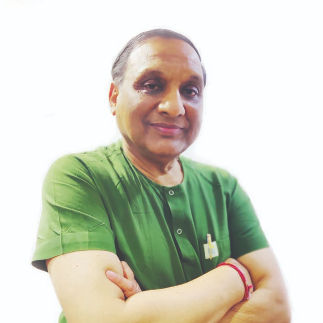
Dr. Alok Agrawal
General Physician/ Internal Medicine Specialist
30 Years • MBBS, MD, MRCP (UK)
Delhi
Apollo Hospitals Indraprastha, Delhi
(100+ Patients)
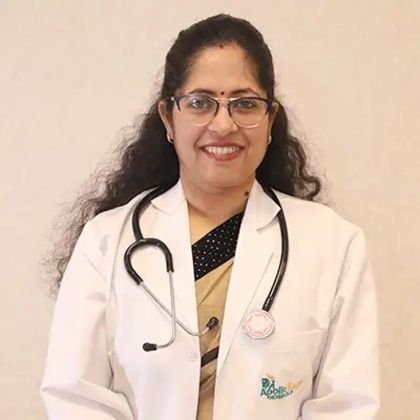
Dr. Neelam Jain
General Physician/ Internal Medicine Specialist
16 Years • "MBBS, DPB ( Dip in pathology and bacteriology)-Mumbai CCEBDM, PGCDM, CCMTD"
Bhopal
Apollo Sage Hospitals, Bhopal
Consult Top Specialists
Dr. Sagarika Nanda
Infectious Disease specialist
9 Years • "• Fellowship of National Board Infectious Diseases Apollo Hospitals Jubilee Hills 2022 • MD General Medicine KMC Manipal 2013 • MBBS & Internship KMC Manipal 2003 -2009"
Hyderabad
Apollo Hospitals Financial District, Hyderabad
Dr. S K Agarwal
General Physician/ Internal Medicine Specialist
43 Years • MD, MNAMS, FICP
Delhi
Apollo Hospitals Indraprastha, Delhi

Dr Vinay Kumar A V
Nephrologist
8 Years • MBBS, MD - General Medicine, DM - Nephrology
Bilaspur
Apollo Hospitals Seepat Road, Bilaspur

Dr. Alok Agrawal
General Physician/ Internal Medicine Specialist
30 Years • MBBS, MD, MRCP (UK)
Delhi
Apollo Hospitals Indraprastha, Delhi
(100+ Patients)

Dr. Neelam Jain
General Physician/ Internal Medicine Specialist
16 Years • "MBBS, DPB ( Dip in pathology and bacteriology)-Mumbai CCEBDM, PGCDM, CCMTD"
Bhopal
Apollo Sage Hospitals, Bhopal
More articles from General Medical Consultation
Frequently Asked Questions
How long does it take to fully recover from a transplant?
Full recovery is a gradual process. While you may feel significantly bette within 3-6 months, it can take up to a year or more to regain your full strength and energy levels. 'Full recovery' also includes adapting to your new lifestyle and medications.
Can I ever stop taking my anti-rejection medications?
Almost never. Immunosuppressants are lifelong medications. Stopping them will almost certainly lead to rejection of your transplant. The dose may be lowered over time, but cessation is extremely rare and only under specific, closely monitored circumstances.
Are there any foods I must absolutely avoid forever?
Yes. Grapefruit and pomegranate (and their juices) interfere with the metabolism of many immunosuppressant drugs, leading to dangerously high levels in your blood. They must be permanently avoided. Your team will also advise avoiding raw/undercooked foods and unpasteurised products due to infection risk.
When is it safe for me to be around pets after my transplant?
It is generally safe, but with precautions. Avoid handling animal waste (e.g., cleaning litter boxes or bird cages) due to the risk of toxoplasmosis and other infections. Wash your hands thoroughly after petting or handling animals.
Can I get vaccinated after a transplant?
Yes, but you must receive only inactivated vaccines and avoid live vaccines (e.g., MMR, chickenpox, nasal flu spray). It is crucial to coordinate all vaccinations with your transplant team to ensure they are safe and effective for you. Getting an annual flu shot and staying up-to-date on pneumonia and COVID-19 vaccines is highly recommended.

